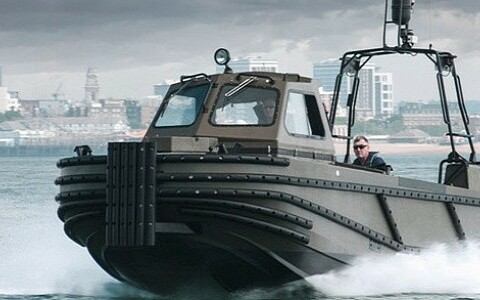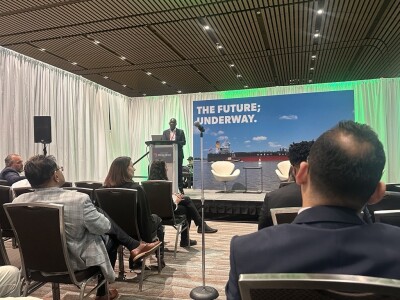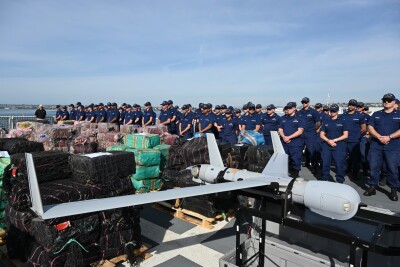Robosys Automation, a specialist in AI-based maritime autonomy, and Landau Marine, a UK installer and integrator, recently announced a collaboration that the companies will revolutionize maritime autonomy for both newbuilds and retrofitted vessels and naval craft.
Robosys said that its Voyager AI software is the cornerstone of this achievement, enabling a seamless transition between crewed, lean-crewed, optionally unmanned, and fully unmanned vessel operations. The transformation is activated with the push of a button, facilitating efficient remote control and reasoned autonomous operations, whether directed from a remote operations center (ROC) or a ground control station (GCS), whether onshore or afloat from a mothership.
Landau Marine specializes in installation, integration, and maintenance services, particularly catering to defense clients such as NavyX, the Royal Navy's autonomy and lethality accelerator. Landau's specializes in all facets of technology integration associated with vessel design and construction, with a strong emphasis on zero-emission technology and decarbonization initiatives.
The collaboration combines the strengths of a UK integrator, installer, and service provider with an AI maritime autonomy software developer. Together, they expect to enable customers to rapidly transition their vessels into fully autonomous and/or lean-crewed operations.
The integration of Robosys’ Voyager AI Vessel represents a comprehensive autonomy solution enhanced by artificial intelligence and decision-support capabilities. This empowers the operation of fully autonomous unmanned surface vessels (USVs). Robosys states that Voyager AI is adaptable for a range of tasks, including surveillance, surveying, warfare, and patrolling, and it is compatible with various vessel, propulsion, and sensor systems.
“Landau helps customers install and best utilize new technologies such as Robosys Automation’s Voyager AI suite,” Roger Cerrato, Landau’s sales director, said. “This new collaboration with Robosys reflects the Landau ethos, being to provide innovative installation and integration solutions that are beneficial to our customers, our business, and our world, in efficiency, economic, and environmental terms.”
Cerrato added that Landau is dedicated to supporting its commercial and defense customer base in their requirements for more innovative and effective solutions, such as retrofitting a crewed vessel to become an autonomous craft at speeds of up to 45 knots, delivering many benefits including helping to drive the net zero agenda.
“We are delighted to be working with Landau Marine. This partnership will provide an end-to-end solution for all customers looking to integrate Voyager AI to a new build or as a retrofit to an existing workboat or craft, as Landau’s facilities and team are second to none,” Nigel Lee, Robosys’s CSO.
Robosys' voiced in a statement that its Voyager AI suite encompasses a range of integrations, including proven full autonomous capabilities, collision avoidance, anti-grounding measures, smart object avoidance, and loss of communications features, among others. Voyager AI is adaptable to a wide variety of naval craft, including barges, pilot boats, and workboats, with effectiveness in those ranging from 10' to 78.7'. The technology is already in operation on naval vessels.
Robosys said that its Voyager AI Vessel solution offers IMO Degree 4 autonomy, making it useful for the defense sector due to its adaptability for retrofitting to nearly any workboat. The company states its automation's systems offer not only remote control but also advanced and intelligent autonomous navigation, platform and payload control integration with most vessel systems, collision avoidance, and systems monitoring options, making it a trusted and proven full-stack maritime AI autonomy solution.





